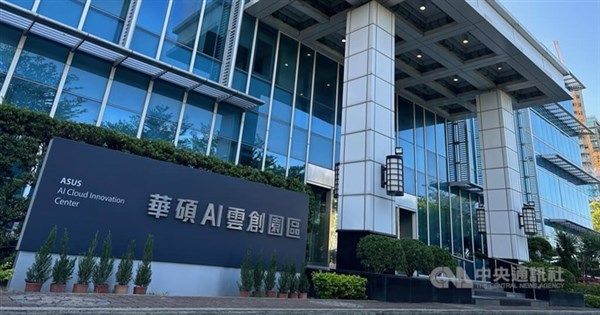Taipei, Oct. 24 (CNA) Shares in Taiwan recovered from earlier losses and closed moderately higher Tuesday as last ditch buying pushed up tech stocks related to artificial intelligence development on their relatively low valuations, dealers said.
iPhone assembler Hon Hai Precision Industry Co., also known as Foxconn on the global market, extended its weakness from a session earlier to fall below NT$100 (US$3.10) for the first time since Feb. 3, when the stock closed at NT$99.60, on news that its subsidiaries in China face tax audits and a probe into land use, dealers added.
The Taiex, the weighted index on the Taiwan Stock Exchange (TWSE), ended up 58.40 points, or 0.36 percent, at 16,309.76, after moving between 16,163.00 and 16,318.77. Turnover totaled NT$231.84 billion.
The market opened up 6.44 points and moved in a narrow range in the early morning session before selling emerged, pushing the Taiex down to the day’s low, falling 88.36 points right before 10 a.m. as the index extended its weakness from Monday, when the main board lost 1.15 percent, dealers said.
However, in the afternoon session, losses were gradually recouped and buying became more apparent in the late trading session as investors rushed to pick up AI-related stocks, in particular AI server Quanta Computer Inc., which helped the main board return to positive territory by the end of the session, dealers said.
“AI related stocks like Quanta Computer had been seriously hammered in recent sessions, and they simply attracted bargain hunters today,” Concord Securities analyst Kerry Huang said.
Quanta Computer rose 4.24 percent to close at NT$209.00 after coming off a low of NT$200.50. The stock generated turnover worth NT$11.21 billion, the largest among stocks traded on the main board Tuesday.
“In addition to technical factors, investors seemed relieved to some extent to have a growing appetite to take risks by buying tech stocks as the benchmark U.S. 10-year treasury yield fell overnight,” Huang said.
The U.S. 10-year treasury yield briefly climbed back above the critical 5 percent level before ticking down to close at about 4.85 percent Monday. Higher treasury yields had prompted investors to fear a recession in the United States, the largest economy in the world.
Among other AI-related stocks which recovered from their day’s lows, AI server supplier Wistron Corp. gained 4.00 percent to end at NT$96.20, and Wiwynn Corp, Wistron’s cloud application subsidiary, soared 10 percent, the maximum daily increase, to close at NT$1,665.00.
In addition, shares in Compal Electronics Inc., another AI server maker, rose 3.51 percent to end at NT$29.45, Giga-Byte Technology Co., a leading graphics card vendor for AI applications, added 3.35 percent to close at NT$247.00, and Lite-On Technology Corp., a maker of power management solutions for AI server use, ended up 2.83 percent at NT$109.00.
Bucking the upturn, Hon Hai, the second largest stock on the market in terms of market value, remained in weakness, falling 2.19 percent to close at NT$98.30, its lowest level since Jan. 30, when the stock ended at NT$98.10. The stock generated about NT$11.13 billion, the second highest on the main board.
“There is no sign that Hon Hai shares will reverse their current weakness anytime soon. Many investors fear that China’s investigations into the company’s subsidiaries will come up with more negative leads so they simply trimmed their holdings now to avoid further losses,” Huang said.
While AI-related stocks attracted more market attention, the semiconductor industry largely moved in a narrow range, Huang said.
In the industry, which lost 0.01 percent, contract chipmaker Taiwan Semiconductor Manufacturing Co. (TSMC), the most heavily weighted stock on the local market, closed unchanged at NT$544.00. United Microelectronics Corp., a smaller contract chipmaker, lost 0.62 percent to end at NT$48.30, and smartphone IC designer MediaTek Inc. closed down 0.61 percent at NT$816.00.
However, Global Unichip Corp., TSMC’s application-specific integrated circuit (ASIC) design subsidiary, rose 1.03 percent to end at NT$1,465.00 after a 8.81 percent plunge on Monday.
Outside the tech sector, food brand Uni-President Enterprises Corp. lost 0.44 percent to close at NT$68.00, but rival Wei Chuan Foods Corp. rose 0.54 percent to end at NT$18.60. In addition, textile supplier Far Eastern New Century Corp. rose 1.40 percent to close at NT$29.05, while Eclat Textile Co. ended down 0.76 percent at NT$525.00.
Huang said the biotech industry was boosted by rotational buying, rising 1.88 percent, after the sector had been hit hard recently. “But, the gains were only technical in nature.”
Among the gaining biotech stocks, test kit provider Panion & BF Biotech Inc. rose 2.88 percent to close at NT$99.90, and drug brand Chunghwa Chemical Synthesis & Biotech Co. added 1.69 percent to end at NT$54.10. Meanwhile, oncology and specialty generics drug developer Lotus Pharmaceutical Co. gained 6.98 percent to close at NT$230.00, while Intra articular injection maker Maxigen Biotech Inc. lost 0.11 percent to end at NT$47.15.
“Although the Taiex recovered its earlier losses, the main board remained technically weak,” Huang said. “Only if the Taiex jumps over the technical hurdles ahead of 16,473 points, the 20-day moving average, will the main board leave the technical weakness behind.”
“In addition, investors should keep a close eye on the current earnings season in the U.S., which could influence foreign institutional investors’ strategies in the Taiwan market,” Huang said.
According to the TWSE, foreign institutional investors sold a net NT$13.00 billion worth of shares on the main board Tuesday.
Source link
credite

